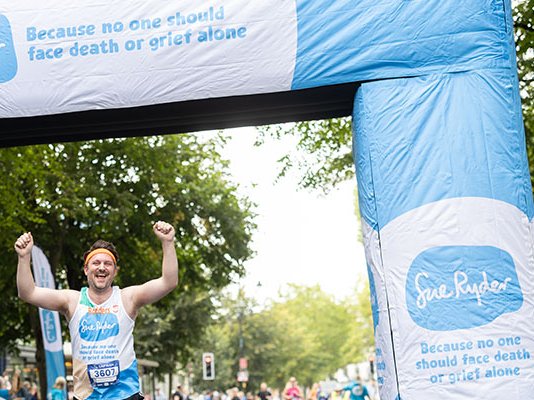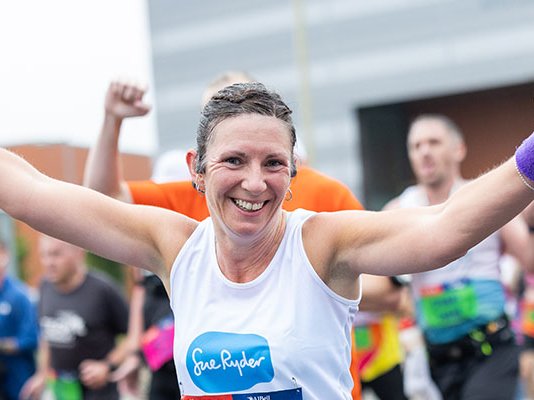Sue Ryder Manorlands Hospice
Sue Ryder Manorlands Hospice is in Oxenhope, near Keighley. As well as expert palliative care, we support people with life-limiting conditions, and their families. We work across Airedale, Wharfedale, Craven, and north Bradford.

Our services
- Inpatient care
- Specialist community services
- Community day services
- Rehabilitation
- Complementary therapies
- Wellbeing and community support service
Address
Keighley Road
Oxenhope
BD22 9HJ
United Kingdom
About Sue Ryder Manorlands
Here at Sue Ryder Manorlands, we combine specialist medical care for managing pain and other symptoms, with other emotional, practical and spiritual support. You might be admitted to receive inpatient care for a short time while your symptoms are assessed and managed.
You might stay with us to receive inpatient care for a short time or a longer stay. We can offer the same services and care to you as a visitor, by using our community day services, if you are comfortable at home, well supported and prefer to stay there.
On the medical side, our experienced doctors, Sue Ryder Nurses, care assistants, physiotherapists, and occupational and complementary therapists all work brilliantly together to support you. Our wellbeing and community support team are always ready to talk too.
Community services
Our community team, made up of Clinical Nurse Specialists who are supported by our medical team, provide specialist support and care in your own home. We personalise your care and support based on your wishes and preferred place of care.
We offer specialist advice and support around symptom control, medication and therapeutic treatments and are there to support you to be as independent as possible for as long as possible.
If you’re comfortable at home but need some advice or assistance, try our community day services. Connect with other people in similar circumstances, and our staff can suggest ways to improve your wellbeing and manage symptoms.
There are lots of activities to try, including complementary therapies like Reiki, massage and acupuncture. We support your carers too.
Sue Ryder Nurses can coordinate treatment with your GP to make sure your care is controlled and consistent.
Watch: What’s it like inside a Sue Ryder hospice?
When Dad was told he had just a short time to live, he chose to stay at home with his family around him. With the help of Manorlands he was provided with everything he needed, both practically and emotionally, to be as comfortable and as peaceful as possible. For that we are forever grateful.
Jo talks about the Hospice at Home care her father, Roger, received
Making a referral
To access our services, you need to be referred by a healthcare professional involved in your care.
If you or someone close to you would benefit from our support, please talk to your GP, consultant, district nursing team or another healthcare professional about referral to Sue Ryder Manorlands.
If you're a healthcare professional looking to refer someone, you make a referral using the SystmOne template, or alternatively please call us on 01535 642308.
Preparing for your stay
If you are going to be coming to Sue Ryder Manorlands Hospice as an inpatient, you might find it helpful to read our palliative and hospice services FAQs page.
Supporting Sue Ryder
We need to raise 70% of of the amount it takes to run all of Sue Ryder’s palliative care services and we can’t do that without the amazing and continued generosity of our supporters.
If you would like to find out more about how you can support us, please contact our local fundraising team on 01535 640 430 or email manorlands.fundraising@sueryder.org
Discover which events you can get involved in to support our care.
More ways to show your support




Make a donation
Your donation can help make sure no one has to face death or grief alone.
